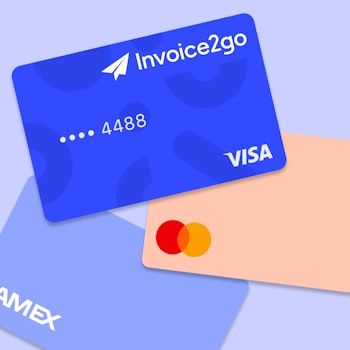
How to manage business finances better: 10 tips for success
New year, new outlook! And if you’re like the rest of our small business and freelancer community, you’ve likely articulated a few things you want to improve. But even if you don’t ascribe to the “resolution” mindset, better managing small business finances is an essential skill that will help in many ways.
When you learn more about managing small business finances and cash flow, your bottom line looks better, business forecasting and planning are easier, and your stress level will almost certainly ratchet down a few notches.
So, in the interest of lower cortisol, better sleep, and more time to grow your business and delight your customers, we’ve got 10 actionable tips you can dive into right away.
How to manage business finances better: 10 tips for success in 2022
Often, big changes emerge from the smallest adjustments. You’ll notice a common thread running through this list, namely, that planning helps you avoid common financial mishaps, and it might just keep you out of the red.
At the same time, many of these tips are about changing your relationship with money. Most people find that the decision phase is usually the most challenging part. Once you have a plan and commit to it, the doing becomes easy.
1. Make business financial planning your #1 priority
Granted, not every small business owner, entrepreneur, and freelancer is a financial genius. If you’ve recently started up a new business, you might have been laser-focused on startup activities, like landing new clients, choosing the right technology, and getting a handle on the day-to-day. But let’s keep in mind that the one thing that makes it all possible is the money that comes in from your efforts.
Business financial planning ensures your money is managed well and used wisely. It might even save you from insolvency should something unexpected come about.
Business financial planning has many layers. Budgets, bookkeeping, taxes, and risk management are all part of the mix.
Here’s your action plan:
- Stay on top of your daily accounting and financial statements. Doing so will help you know when it’s the right time to invest in growth activities
2. Establish healthy financial habits
Systems make the world go round. Something as simple as setting aside dedicated time to manage business finances each week will contribute a lot to your company’s financial health. The better tuned in you are to your finances, the easier it will be to detect anomalies in time to correct them before they become big headaches.
Fraud, overspending, increased cost of goods, and even what you pay for utilities and other business services are just a few of the things that can tank your profitability.
Here’s your action plan:
- Maintain proper bookkeeping and have a basic knowledge of how to manage small business finances
- Use accounting software to automate payments, invoices, and basic banking, but don’t rely on it for everything
- Review your transactions weekly or daily to ensure you have the complete picture. If you notice something unusual, act immediately to rectify and resolve it.
3. Pay yourself first
Many new small business owners give 100% to their company in the interest of business growth and improvement. But don’t forget, you’re the one at the center of it all, so you need to pay yourself accordingly. Your business will not thrive if you shortchange yourself. Plus, if something happens and the company fails, you won’t have gained anything from it.
Your action plan:
- Pay yourself at least as much as you pay your most trusted managers
- If you don’t feel you can afford to pay yourself market value, be sure it’s enough for you to take care of your personal finances, pay your bills, mortgage, etc
4. Use loans strategically
You don’t want to leverage yourself into a corner, but you shouldn’t be afraid to access business financing when it makes sense. Strategic borrowing brings a lot of benefits and can help you grow. However, if you don’t have a lot of experience in this area, you might need to change your outlook a bit to make it work for you.
Knowing how much to borrow, when to borrow, and knowing your options are critical. It’s also essential to have an excellent understanding of your business valuation, potential, and a solid plan for business growth.
A few tips for using a small business loan strategically:
- Don’t wait until you’re desperate to borrow. You need to show that your business is healthy before any lender will consider the risk
- Keep your business plan up to date
- Maintain meticulous financial statements
- Have a plan for the money and know-how the investment will benefit your company
- Keep an open mind about your financing options. The bank is not always your best resource
- If you’re borrowing for a specific purpose, ensure you ask for what you need to accomplish your goals. Borrowing too little won’t get you there
- Don’t pay your loans off too quickly, or it might cost you more in the end
5. Protect your business credit
Your business credit is just as important as your personal credit. At some point, you’ll need to grow, and that usually requires a loan. If your business credit isn’t good, you might have trouble achieving your goals of acquisition, expansion, or offering employee benefits. Good business credit means more options and fewer limitations when it comes time to grow.
By the same token, knowing your business credit score is critical as you’ll be able to get in front of any adverse reports before they impact your creditworthiness.
Here’s your business credit action plan:
- Pay your suppliers on time and as expected
- Don’t take out loans with interest rates you can’t afford
- Clear your business credit card balance before interest accrues
- Pay off all debt funding as quickly as possible
6. Make sure you have a solid billing strategy
If you’re still mailing out paper statements or invoices, you’re likely not getting paid for weeks. Switching to an online invoicing system like Invoice2go, a Bill.com company, helps you get paid faster as customers can respond and pay directly from the electronic invoice. On average, using a digital invoicing workflow enables you to get paid three weeks faster than traditional snail mail.
Invoice2go payments supports many ways to pay, including all major credit cards, debit, ApplePay, and PayPal, so it’s super convenient for your people, and your money will be in your account immediately. You can also enable recurring invoices, payment reminders, and even send invoices from your mobile device and deliver them via SMS, email, WhatsApp, or Messenger.
Your billing action plan:
- Stay on top of your receivables to keep cash flow strong
- Implement an invoicing application like Invoice2go
- Set up automated billing cycles for your monthly customers
- Ensure you offer multiple payment methods to make it easy for your customers
7. Spread out tax payments to help cash flow
Nobody wants to end up on the business end of the IRS. Not planning for taxes or failing to make your quarterly payments can result in underpayment penalties, which means you’ll end up paying the feds a lot more than you’d owe otherwise. Penalties for late payments add up quickly and max out at 25% of what you’d owe otherwise. Even so, there are better uses for that money, and we’re confident you could think of a few.
If you’re having trouble making your estimated quarterly payments, try making monthly payments instead. When you break up your payments into smaller chunks and pay it like you would any other bill, you’ll always be in compliance, and you won’t have to sweat those quarterly deadlines. Being prepared pays off, big time.
Here’s your tax payment action plan:
- Read our post on how to file estimated quarterly taxes
- Calculate what your monthly payment would be based on your estimated quarterly installments
- Pay your taxes monthly instead of quarterly
8. Stay on top of your books
We talked a little about this in #2 above (under healthy financial habits), but it merits its own section. If you block time each day or each week to review your books, you’ll have a better understanding of how your money is working for you.
Even if you’re already working with an accountant, bookkeeper, or online accounting service, you need to be intimate with your finances as it is the single most critical indicator of your company’s financial status. Cash flow will make or break your business, so it’s always in your best interests to be informed.
Plus, if you decide you want to pursue financing for any reason, if you sell your company or merge with a larger organization, your books will determine its valuation. There are a lot of dos and don’ts we could toss around here, but having good financial counsel when you set up your company is an excellent place to start. A professional accountant or bookkeeper can help you set up your accounts and categories properly and explain any processes or terminology. Still, you should not rely 100% on outside services or people. Failing to understand your books can quickly lead to overspending or wasteful spending and will devalue the hard work you’re doing.
Your action plan to stay on top of your books:
- Review all transactions yourself. Don’t rely on someone else to do it for you, or if you do, be sure to check their work regularly and ask questions if needed
- If you notice any anomalies, investigate, correct, and remediate immediately
- Understand your billing cycles and reconcile payments to identify slow-paying clients and other liabilities
9. Plan ahead to better manage small business finances
If you’re ahead of the game, you’ll be able to focus on higher-value activities, like nurturing clients, winning new business, and jumping on opportunities as they arise.
In today’s uber-competitive business climate, there’s always a new upstart ready to capture your share of the market when your back is turned. You need to stay on top of trends, technology, markets, and the competition to come out on top. It’s a lot to think about, but sound financial planning puts you in the driver’s seat and lets you concentrate on the future instead of always playing catch-up.
Without adequate planning, the day-to-day often gets in the way, and the next thing you know, it’ll be five years later, and you won’t be any further ahead. When you prioritize financial planning, your business goals will begin to take shape.
Your plan-ahead financial management action plan:
- Develop a one-year, five-year, and 10-year plan
- Set aside time each year, quarter, and month to assess your progress against specific KPIs
- Adjust or course-correct when needed
- Project sales and growth
- Arrange financing
- Plan for contingencies and emergencies
10. Know that it’s okay to ask for help when learning about managing small business finances
Unless you’re a financial professional, you might not have an innate grasp of how to manage small business finances. And that’s okay! No one person can be all things to their business, no matter how smart, talented, or accomplished they are. Asking for help is not a sign of weakness—it’s actually an indication that your priorities are on the money (so to speak).
Surround yourself with trusted advisors and arm yourself with tools that deliver high value for your investment. Invoice2go is an excellent example, as it’s user-friendly, easy to set up, and offers many customizations and features that will help you grow your business in remarkable ways.
Business finances are something you can’t just slough off until tax time or dump on your accountant’s desk. Of course, many small business owners do, and they end up spending inordinately more than they ought to on financial services—and they’re no further ahead because of it.
The better strategy is to learn, simplify, and create a routine that works for you. As a result, you’ll be more in tune with your company’s financial health and future prospects, and you’ll gain a lot of confidence and peace of mind in the process.
If you’re overwhelmed with the idea of diving into this undertaking, just know that there are people and tools that can help. The brightest, most influential people in the world surround themselves with expert advice because they know it helps them achieve more.
Here’s your ask-for-help action plan:
- Talk to your peers or fellow small businesses and ask for help
- Educate yourself as much as you can and learn from the best
- Choose tools that make it easy to manage business finances
- Join the Invoice2go small business community for tips and advice
Related Articles

How to accept credit card payments on Invoice2go in 3 simple steps

Accept payments online via Apple Pay and Google Pay

Must-not-miss write-offs as you wrap up 2022 year-end finances

5 ways accepting credit and debit card payments helps your business stay resilient

4 easy ways to increase cash flow today

What is Small Business Saturday and why is it important?
The features and surprising benefits of a well-designed packing slip
